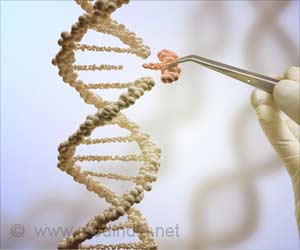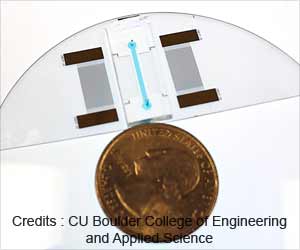FDA approval of gene therapy for biallelic RPE65 mutation-associated retinal dystrophy marks a new era in treatment of genetic diseases.
Highlights:
- Novel gene therapy LUXTURNA™ (voretigene neparvovec-ryzl) was approved by FDA for patients with confirmed biallelic RPE65 mutation-associated retinal blindness.
- Approval of gene therapy for inherited blindness may guide and give the much needed thrust and understanding to develop similar treatments for other inherited disorders.
“I’ve witnessed the dramatic changes in the vision of patients who would have otherwise lost their sight, and feel exhilarated that this therapy will now make a difference in the lives of more children and adults,” Bennett said.
“I’m hopeful that the path we’ve made with this research, with the help of our collaborators near and far, will be useful to other groups, so that other gene therapies can be developed faster and help more people with other diseases.”
Interestingly,this is the second FDA approval for a University of Pennsylvania/CHOP-developed gene therapy in six months. In August 2017, the personalized cellular therapy known as Kymriah™ was formally approved to treat advanced acute lymphoblastic leukemia in children and young adults.
Gene Therapy for Retinal Blindness – A Boon to Sufferers
Hereditary retinal dystrophies refer to a broad group of inherited retinal disorders associated with progressive loss of vision, caused by mutations in any one of more than 220 different genes.Bi-allelic RPE65 mutation-associated retinal dystrophy affects around 1,000 to 2,000 patients in the U.S. The RPE65 gene encodes for a protein that is essential for normal vision. Mutations in this RPE65 gene lead to reduced or absent levels of RPE65 protein activity, affecting the visual cycle and resulting in impaired vision.
Children with the gene mutation often are diagnosed at an early age with disorders such as Leber congenital amaurosis (LCA) or retinitis pigmentosa. Affected individuals experience progressive loss of vision over time. This loss of vision, seen typically during childhood or adolescence, ultimately progresses to complete blindness
Details of the LUXTURNA Clinical Trial and Key Findings
During this trial, corrected versions of the RPE65 gene was delivered as a one-time injection, using a genetically engineered, benign adeno-associated virus into the retina.- The initial Phase 1/2 clinical studies at University of Pennsylvania began in late 2007, with a total of 12 patients ranging from eight to 46 years old diagnosed with the disease.
- Within weeks of receiving the injections, most of them had improved vision; in fact half of them had improvements to the degree they were no longer considered legally blind.
- The Phase III trial included 29 patients aged 4 to 44 years and some of them were treated at the University of Iowa.
- Results of the phase III trial showed improved ability to navigate in low light, increased sensitivity to light and better side vision.
- Many of the volunteers are now able to recognize faces, read chalkboard, do grocery shopping, take driving tests, and have more job opportunities, all of which seemed an impossible dream earlier.
- The safety of the procedure was comparable to vitrectomy operation and subretinal injection procedure.
- Adverse effects included cataract, intraocular infection, reduced visual acuity (one patient), altered intraocular pressure and macular changes.
Precautions to Take While Giving LUXTURNA
- Luxturna should be administered only to patients who have viable retinal cells as determined by the treating doctor.
- Luxturna therapy must be done separately in each eye on separate days, with a minimum six-day gap between the procedures.
- It is given via subretinal injection by a surgeon skilled in intraocular surgery.
- Patients treated with Luxturna should also receive a short course of oral prednisone to limit the potential immune reaction to Luxturna.
Further Plans for the Future
- To further evaluate the long-term safety, the manufacturer (Spark Therapeutics Inc) and the research team plan to perform a post-marketing observational study involving patients treated with Luxturna.
- FDA plans next year (2018) to begin issuing a series of disease-specific guidance documents on the development of specific gene therapy agents using modern and more efficient parameters and clinical measures in order to evaluate and review of gene therapy for various high-priority disorders that are currently being trialed.
- FDA approves novel gene therapy to treat patients with a rare form of inherited vision loss - (https://www.fda.gov/NewsEvents/Newsroom/PressAnnouncements/ucm589467.htm)
- FDA Approves Gene Therapy for Inherited Blindness Developed by the University of Pennsylvania and Children’s Hospital of Philadelphia - (https://www.pennmedicine.org/news/news-releases/2017/december/fda-approves-gene-therapy-for-inherited-blindness-developed-by-university-of-pennsylvania-and-chop)
Source-Medindia
















